For its latest North American car body engineering Insight conference, the Automotive Circle heads to upstate South Carolina – a region that’s home to the largest plant in the BMW manufacturing network…
Automotive Circle – Car Body Engineering
Insight @ BMW Manufacturing
Greenville-Spartanburg, South Carolina – 12/13 September 2019
Documenting, discussing and benchmarking developments in series car body engineering for more than 30 years, the Automotive Circle continues to develop a busy schedule of networking and knowledge-sharing events.
Among its comprehensive annual programme is the aptly-named Insight conference series. Staged in close cooperation with a selected OEM, the conference itself focuses on a pre-defined topic of particular interest and relevance not just to the given OEM partner but the wider automotive engineering audience.
Alongside its Europe-based activities, the Automotive Circle is pushing ahead with more North American events such as the upcoming car body engineering Insight conference at Greenville-Spartanburg, South Carolina, to be held 12-13 September, 2019.
The region is home to BMW’s largest production facility worldwide. The OEM will play joint host for the event and is opening its doors to delegates for an extensive guided tour of the X model bodyshop. Boosting the credentials of the agenda, the speaker program for September’s event brings in expert presenters from not only BMW but GM, Volvo, tier suppliers and technology specialists.
Exercising choice
The largest individual car plant in its global network, BMW views Spartanburg as a notable example of its expertise in flexible production. Equipped to react to the diverse and dynamic requirements of the global market, the guiding principle is “freedom of choice”.
The plant is BMW’s global centre of competence for its X models and, to date, has seen investment of more than $10 billion into the operation. Assembling around 1,400 vehicles each day, the venture employs than 11,000 workers, supporting production of the X3, X5 and X7 Sports Activity Vehicle and the X4 and X6 Sports Activity Coupe.
The impressive numbers and state-of-the-art approach make Spartanburg a prime candidate for the Automotive Circle’s Insight conference treatment.
Tutorial: International Center for Automotive Research (CU-ICAR)
Confirming its ties with the region, BMW maintains a strategic partnership with South Carolina’s renowned Clemson University, particularly the International Center for Automotive Research (CU-ICAR). On the eve of the Insight conference, CU-ICAR is inviting delegates to its practice-oriented workshop, entitled Enabling Industry 4.0 for plastics and composites.
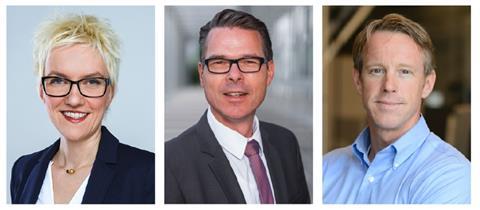
Insight @ BMW – Program committee Q&A
AMS speaks to three members of the program committee responsible for curating the content for the event: Automotive Circle Presidium Dr Sibylle Freitag, Dr Stefan Baginski, department manager for BMW Spartanburg bodyshop and Prof. Laine Mears of Clemson University’s Department of Automotive Engineering, BMW’s strategic research partner in South Carolina.
In terms of the event content, what developments are you most encouraged by and interested to see grow??
Dr. Baginski: Multi-material joining in general and new material developments, especially 3D printed metals (isotropic and anisotropic), are very important for future car body developments to reduce weight of the cars.
Prof. Mears: It is exciting from a research standpoint to see how the development and use of new materials which can greatly affect vehicle performance and safety gives rise to new challenges in manufacturing. The automotive industry infrastructure reflects the long history with steel as a basis, so now as we bring in aluminium, composites, and even varying grades of steel, the joining challenges go beyond spot welding settings. New architectures and approaches are emerging and it is a fresh field of research with potential for some serious impact. It is fun to understand how little we know about multi-material joining, with the potential to make breakthroughs that will contribute to the global economy.
Dr. Freitag: We live in a time in which all OEMs – established and new – are united by an increasing need for flexible development and production. It is becoming more important than ever to be able to react quickly to new technological developments and ever-changing market requirements worldwide.
What sort of impact is Industry 4.0 or digital manufacturing having on the bodyshop?
Dr. Baginski: In today’s world, bodyshops are already highly automated, up to 98%. Due to this, a lot of digital information already is available. To make better use of this data and put it into new contexts would allow us to run even more efficient and support the production and maintenance personnel in operating the equipment. The mobile maintenance app we developed is one of those examples.
Prof. Mears: The ubiquitous availability of information on the shopfloor is transforming how manufacturing is carried out. We are just at the brink of finding the right way to leverage this new approach to building body structures, where one process can actually learn about the specific instance of manufacture, and teach downstream processes so they can adjust in real time (for example, the same grade of material can vary up to 10% across batches and suppliers; how can a manufacturer systematically deal with that?) This applies not only to joining, but to material handling, robotics, measurement and qualification. The concept is reality now; we are just learning how to carry it out, in order to find the best ways and to impact the culture of acceptance through demonstrating the benefit of this approach.
On the strategic partnership between BMW Spartanburg and Clemson University, are there examples of its innovations or programmes implemented at the factory?
Dr. Baginski: There are multiple examples across the plant implemented. For the body shop, we’re just right now preparing for the integration of a human-robot collaboration for which the concept was tested first at Clemson together with BMW. This is an example of close collaboration which benefits both parties.
Prof. Mears: Clemson has approached research with BMW in a way that prepares it immediately for benefit to the plant. In contrast with more traditional university research which may explore fundamental concepts that would become the building blocks of future systems, Clemson lays out research with a short-term engineering benefit blended with long-term development. In this way, our work can realise an immediate benefit through prototypes tested at the plant, that are then refined as the underlying concepts are clarified. One example is a program of wearable sensing being tested in the plant, whereby factory associates provide data to the network through discreetly-placed microphones, accelerometers and force sensors. This data can be used for process learning, and immediate feedback for manual operations. Another is through the development of low-cost vision systems which can now be deployed in areas of the plant that would have previously been cost-prohibitive. Such solutions are tested in the Clemson Vehicle Assembly Center, a mock-up automotive factory that allows testing and refinement of such solutions without production pressures, before they find their way to the plant floor.
Automotive Circle – Car Body Engineering: Insight @ BMW Manufacturing will be held in Greenville-Spartanburg, South Carolina on 12/13 September 2019
For more information visit www.automotive-circle.com


















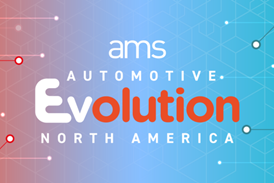









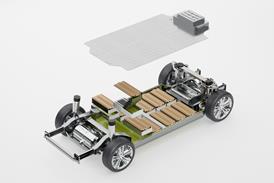

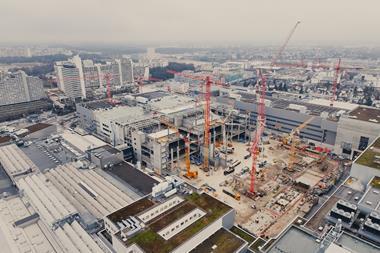
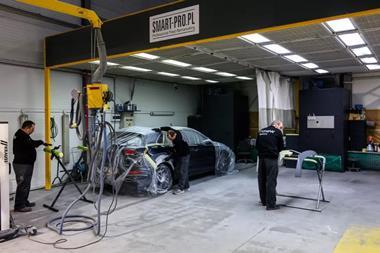


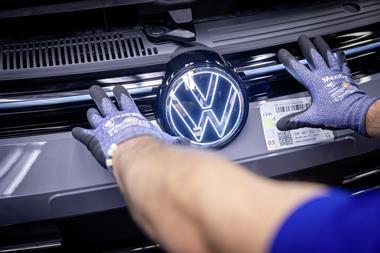



No comments yet